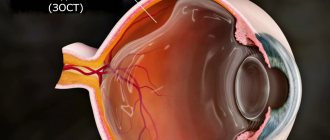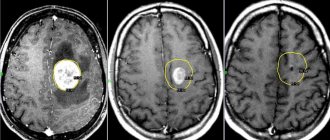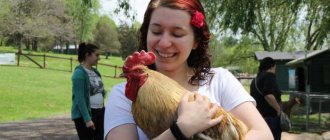Asocial (antisocial) behavior is a mental disorder that occurs at different ages. It is characterized by obvious or hidden hostility, aggression that manifests itself towards other members of society, and disregard for moral norms. Sometimes asociality takes the form of a minor violation of the rules established in society, in other cases it can seriously harm others. Individuals prone to antisocial behavior may lead an isolated lifestyle or unite with other individuals who have a similar worldview.
Why people behave antisocially: the main reasons
In psychology, several factors are identified that act as sources of antisocial behavior. The main ones are:
- social,
- pedagogical,
- medical.
Social factors include violence that manifests itself in physical or verbal form. A child or adolescent may be exposed to it both at home and among their peers. Sometimes antisocial behavior is caused by reasons such as an unhealthy family environment or the presence of strict restrictions on the part of parents. In these cases, the model for the formation of asociality is as follows: deviant behavior becomes a kind of defense against external aggression, the only thing that can be opposed to the imposed rules and foundations. Also susceptible to deviations from generally accepted norms of behavior are individuals involved in religious cults, persons deprived of material wealth and having a feeling of envy of the well-being of others.
Pedagogical factors primarily mean improper upbringing, as a result of which the likelihood of developing deviations increases significantly. A tendency towards asociality is shown by individuals who grew up in prosperous but authoritarian families, where harsh punishments and suppression of children's individuality were practiced. There is another extreme that can cause a problem - excessive indulgence of the child’s whims, spoiling, leading to the development of selfishness, the desire to get what you want at any cost. Children deprived of parental care or suffering from excessive care are at risk. The first category seeks to attract attention to itself by violating the prohibitions established by society. The second feels her inferiority, inability to be independent and tries to assert herself through illegal actions.
Medical causes of antisocial behavior include brain damage and serious illnesses affecting the mental sphere (schizophrenia, paranoia, personality disorders). People with such diagnoses are not aware of their actions and are not able to realize that their behavior contradicts generally accepted norms. A factor that provokes asociality is physical disabilities. This means that, having certain physical defects, a person remains in a normal mental state, but is afraid of being rejected or ridiculed. As a result, he behaves aggressively towards other members of society and avoids any contact with them.
Psychiatrists' opinion
There are many circumstances that contribute to the development of deviation. Experts say that it may be associated with biological reasons, characteristics of upbringing, or a certain way of thinking. There are two concepts - antisocial behavior and antisocial. How are they different? Many scientists associate these phenomena with the presence of mental disorders. Psychiatrists distinguish two types of individuals with such deviations. According to this point of view, antisocial individuals include:
- People who have isolated themselves from society. They have a special inner world. There is almost no contact with others. The experiences of such individuals, their emotions, attachments are not manifested externally and are unknown to others. The isolation of such individuals does not cause them suffering. Low-income people with this disorder become vagabonds. The rich are gaining a reputation as eccentric eccentrics.
- Persons who are unable to establish contacts with others. They cannot function normally in society and experience great suffering as a result. Such an individual perceives any interaction as torture. Therefore, he tries with all his might to hide from others. Others notice oddities in a person’s behavior (excessive shyness, unceremoniousness, ridiculous actions) and also instinctively avoid communication. As a result, the antisocial personality is deprived of friendship and romantic relationships. Such people are forced to spend a lot of time at home and not go anywhere. They worry about being unable to realize themselves at work or start a family.
These personality types do not have a negative impact on society.
According to psychiatrists, cases of antisocial behavior are characterized by a negative impact on others. Such manifestations include delinquency and criminal behavior. Experts explain such deviations as the development of a serious mental illness.
Types of antisocial behavior
Behavioral deviations have wide variability. Modern psychologists distinguish 4 types of antisocial behavior.
| Illegal | Includes such actions as hooliganism, humiliation of human dignity, petty theft, vehicle theft, and attacks not intended to rob or kill. Persons who have committed this are under the supervision of representatives of the law. They are considered capable of more serious actions related to violation of legal norms. |
| Addictive | The essence of this concept is the desire to escape from reality by plunging into one of the types of addiction. The latter can be chemical (alcohol, drug, substance abuse), food (bulimia, anorexia), cult (implies involvement in the activities of religious sects). There are also other types of addictions (the most common is computer addiction). |
| Immoral | Manifests itself in non-compliance with moral and ethical standards. This type of antisocial behavior does not pose a direct threat to society, but is condemned and condemned. This includes reluctance to engage in work, the provision of paid services of an intimate nature, vagrancy, and begging. |
| Criminal | Involves the commission of actions involving criminal liability. The category of criminal behavior includes banditry, burglary, robbery, rape, extortion, fraudulent schemes, and organizing mass riots. |
Manifestations at different ages
Antisocial behavior can manifest itself at different stages of life. According to statistics, teenagers and young adults are most susceptible to it. Also among the asocials are some adults who refuse to lead a lifestyle familiar to the majority.
In children
At an early age, antisocial behavior takes the form of:
- inability to communicate with peers;
- conflict, aggressiveness;
- hysteria, rudeness;
- cruelty towards people and animals.
Children with antisocial tendencies most often are not interested in educational activities and educational activities. They often have a tendency towards theft and sadism. Younger schoolchildren with deviant behavior are often registered as difficult to educate.
Teenagers
The syndrome of antisocial behavior in adolescents manifests itself in cases where the child was not subjected to appropriate correction during preschool age. By this period, behavioral characteristics are formed that can remain with a person throughout his life.
In addition to adolescents who showed antisocial tendencies already in childhood, immature individuals from prosperous families can also violate the norms established in society. Most often, they fall under outside influence or are burdened by the excessive severity of their parents and mistakenly perceive a bad image as romantic. The motivation for antisocial behavior in adolescence may be belonging to certain subcultures (hippies, punks, goths) or exposure to musical fanaticism.
It is typical for teenagers to flaunt defiant actions, be rude to others, and be proud of the lack of punishment. Some try to unite other rebels around themselves and assert their exclusivity in this way.
The process of becoming accustomed to an antisocial lifestyle occurs in stages. At first, teenagers refuse to carry out any school or home assignments, do not recognize the authority of adults, and get involved in conflict situations. At the next stage, minors may leave home, engage in vagrancy, petty theft, and engage in promiscuous sex. Sometimes during a crisis, antisocial individuals direct aggression towards their own body and cause various injuries to themselves.
Adults
At an older age, antisocial behavior is most often a continuation of negative habits developed in childhood. Sometimes it can be caused by mental pathologies, brain disorders that occur due to the use of alcoholic beverages and drugs.
Adult asocial individuals do not want to have a permanent job and a normal family, to be full-fledged parents, to obey existing laws, or to respect the people around them. Quite often they become vagabonds, leading lives filled with petty crimes and other immoral acts.
There is also a group of asocials who have a high material status, but lead an atypical life. Some of them receive a good education and are intellectually developed. Among these people are the creators of pornographic sites, people whose earnings are related to fraud, elite prostitutes, and gay people.
In addition to the designated categories, there is also a separate group of people whose activities are not negative in nature and at the same time cause bewilderment. These include the so-called geniuses, who stand out from the crowd with their behavior, statements, and creations. Most often these are representatives of science or creative professions - artists, actors, writers, etc.
What is meant by this concept?
Any individual is subject to the laws of the group to which he belongs. A person is familiar with the moral and legal norms that exist in society. There are a certain number of people who ignore such rules. These are individuals of different professions, levels of material wealth, and age categories. Antisocial behavior is the intentional violation of laws and regulations that has an active or passive effect on other members of society. People who experience it do not follow established traditions. Therefore, others treat them negatively.
Prevention of antisocial behavior
Behavioral disorders are treated only when they are caused by physical or mental illness. In other cases, the leading method of correcting antisocial behavior is prevention, which should be carried out from an early age. Preventive measures are based on proper upbringing, a worthy example on the part of adults, and full-fledged care for the child, which does not deprive him of the opportunity to express his individuality.
Psychologists have developed recommendations aimed at preventing deviant behavior in children, promoting the formation of an adequate attitude towards themselves and others. The most effective in this regard are:
| Appropriate Praise | Incentives should only be used when there is a reason for it. Unreasonable praise contributes to the development of selfishness and narcissism. In the future, this entails adaptation difficulties and problems with maintaining discipline in educational institutions. |
| Confidential communication | The younger family member should have complete confidence that his parents will not judge him and will always provide help. Fear of punishment provokes isolation, deceit, and resourcefulness. To maintain children's trust, you need to solve problems in a calm environment, without any pressure. |
| Correction | Having identified undesirable character traits in a child and noticing negative actions, adults do not need to remain idle. It is important to analyze what happened, avoiding raising your voice, and explain why such behavior is unacceptable and what it can lead to. |
| Personal example | In order to raise a worthy citizen of society, parents must maintain a friendly atmosphere in the home and show mutual respect and care. This forms normal self-esteem in the child, ensures in the future the correct model of behavior, perception of the people around him, and the building of harmonious family relationships. |
| Spending time together | Children especially value the time spent with their families. Memorable events such as family holidays, joint recreation in nature, playing sports with mother or father help the child grow up balanced, friendly, and sociable. |
The most stable results are ensured by prevention, which consists of the joint efforts of the family and children's educational institutions. To prevent behavioral disorders or correct existing deviations, teaching staff implement programs promoting a healthy lifestyle, aimed at instilling spiritual values, and the right choice of a future profession. Such work often brings positive results: it helps many children to realize themselves with dignity in the future and take the path of overcoming existing deviations.
How to prevent the development of disorders?
Prevention of antisocial behavior is as follows:
- Parents and teachers should praise the child only in cases where he has earned approval.
- Negative character traits, addictions and unseemly actions cannot be ignored.
- You must always be prepared for open and calm communication with your child. He needs to feel supported and respected.
- Try to spend as much time as possible with your son or daughter.
- Particular attention should be paid to creating a positive atmosphere in the family, mutual understanding, and organizing joint leisure time.
- Parents and teachers need to instill in their children a desire for creativity, sports, and intellectual activity.











